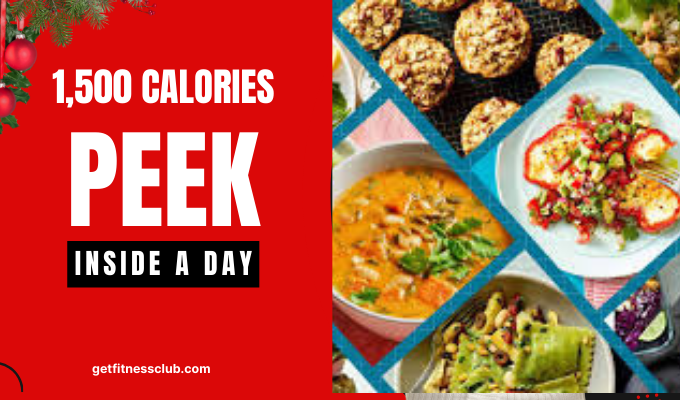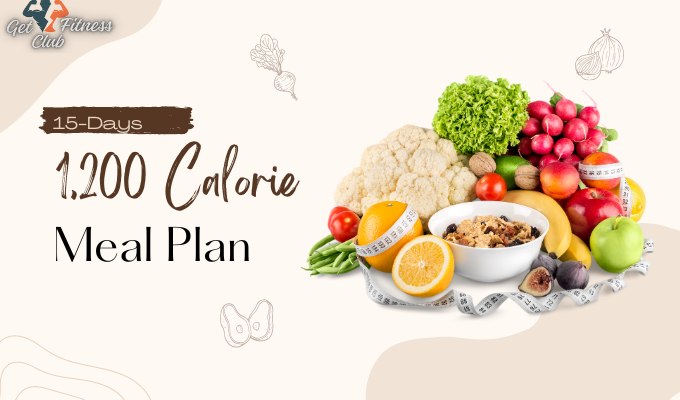Have you ever wondered, 1,500 Calories? Peek Inside a Day! We embark on a flavorful journey through a day of balanced eating as we delve into the tantalizing world of nutrition. Picture a day where taste meets health in a harmonious blend of satisfying meals, all carefully curated to meet your calorie goals. From hearty breakfasts that kickstart your morning to delightful dinners that leave you nourished and content, join us as we demystify the art of mindful eating. Get ready to savor the essence of a 1,500-calorie day—a delicious roadmap to a healthier you!

What Does a 1,500-Calorie Day Look Like?
How to Calculate Your Daily Calorie Goal:
Before diving into a 1,500-calorie day, it’s essential to determine your daily calorie goal. Factors such as age, gender, activity level, and weight loss or maintenance goals play a role. Many online calculators can help you estimate your daily calorie needs. Once you have this figure, you can plan your meals accordingly.
Breakfast:
Start your day with a nutritious and satisfying breakfast that sets the tone for the rest of the day. Balance protein, carbohydrates, and healthy fats
Scrambled eggs with spinach and whole-grain toast (Approx. 300 calories)
Greek yogurt with berries and a sprinkle of granola (Approx. 250 calories)
Morning Snack:
Keep your energy levels steady with a mid-morning snack. Choose snacks that provide a mix of protein and fiber to keep you full until lunch:
Apple slices with almond butter (Approx. 150 calories)
Lunch:
Opt for a well-rounded lunch to fuel your afternoon. Include lean proteins, vegetables, and complex carbohydrates:
Grilled chicken salad with mixed greens, cherry tomatoes, and quinoa (Approx. 400 calories)
Vegetarian wrap with hummus, shredded carrots, and whole-grain tortilla (Approx. 350 calories)
Afternoon Snack:
Combat the afternoon slump with a nutritious snack that won’t derail your calorie count:
Cottage cheese with pineapple chunks (Approx. 150 calories)
Dinner:
Finish your day with a satisfying dinner that incorporates lean proteins and plenty of vegetables:
Baked salmon with roasted sweet potatoes and steamed broccoli (Approx. 450 calories)
Quinoa stir-fry with tofu and a variety of colorful vegetables (Approx. 400 calories)
Mid-morning snack (Approx. 150 calories)
If you find yourself hungry between meals, consider a light snack to keep your metabolism active:
Handful of mixed nuts (Approx. 150 calories)
Evening Snack (Approx. 100 calories)
Conclude your day with a small, low-calorie snack to curb any late-night cravings:
Sliced cucumber with hummus (Approx. 100 calories):
Remember, this is just a sample 1,500-calorie day and may need adjustments based on your specific nutritional requirements and preferences. Always consult with a healthcare professional or nutritionist for personalized advice.

Conclusion:
In summary, a 1,500-calorie day involves balanced meals and snacks rich in nutrients. This example prioritizes lean proteins, whole grains, and plenty of fruits and vegetables. Keep in mind that individual needs vary, and it’s crucial to customize your plan based on factors like age, activity level, and health. For personalized advice, consult healthcare professionals or dietitians. Ultimately, a sustainable approach to nutrition requires consistency and a focus on long-term well-being.
FAQS:
Q1:How much weight will I lose by eating 1500 calories a day?
The amount of weight you will lose by consuming 1500 calories a day depends on various factors, including your current weight, metabolism, activity level, and overall health. Generally, a daily caloric deficit (burning more calories than you consume) is associated with weight loss. It’s recommended to consult with a healthcare professional or a registered dietitian to determine a suitable and sustainable caloric intake based on your individual needs.
Q2:Is 1500 calories a day realistic?
Whether 1500 calories a day is realistic depends on factors such as your age, gender, weight, height, and activity level. For some individuals, this may be an appropriate and sustainable amount, while for others, it might not provide enough energy. It’s crucial to strike a balance that supports your overall well-being and weight management goals
Q3:How to consume 1,500 calories a day?
To consume 1500 calories a day, focus on nutrient-dense foods such as lean proteins, whole grains, fruits, vegetables, and healthy fats. Meal planning and portion control are essential to ensure you meet your nutritional needs while staying within the calorie limit.
Q4:Is 1500 calories starving?
Whether 1500 calories is considered “starving” depends on the context of an individual’s needs and metabolism. For some people, this may be an adequate amount, while for others, it could be too low. It’s crucial to prioritize nutritional quality and ensure you’re getting essential nutrients even when aiming for a calorie deficit. Extreme calorie restriction without proper nutritional balance can lead to health issues.


